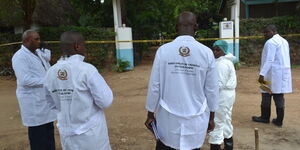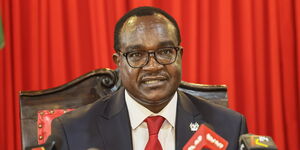The World Health Organization (WHO) has dismissed claims linking the use of paracetamol (acetaminophen) during pregnancy to autism.
In a statement, the body clarified that there is currently no conclusive scientific evidence supporting such assertions.
According to WHO, while research into cases of autism spectrum disorder (ASD) was still ongoing, no consistent association has been found between the use of painkillers during pregnancy and autism.
Large-scale, long-term studies conducted over the past decade also failed to confirm any credible link.
“Extensive research has been undertaken over the past decade. At this time, no consistent association has been established,” WHO said.
The clarification came amid sensational claims by US President Donald Trump. On Monday September 22, he announced that the US Food and Drug Administration would notify doctors that using a common paracetamol during pregnancy was associated with an 'increased risk of autism', despite decades of research stating that it was perfectly safe.
Trump further courted controversy by claiming women should 'tough it out' when experiencing pain during pregnancy, instead of resorting to painkillers.
In a rejoinder, WHO explained that autism is a complex neurodevelopmental condition arising from multiple factors which are not fully understood, including genetics and early brain development.
While more children are being diagnosed today due to better awareness and tools, the main cause of the condition has never been attributed to any single factor, like paracetamol use.
In the same statement WHO took the opportunity to debunk the long-standing myth that vaccines cause autism. According to the body, numerous large-scale studies have confirmed that vaccines do not cause autism. Initial studies, which suggested otherwise, have since been discredited.
“Independent experts advising WHO have repeatedly confirmed that vaccines, including those with thiomersal or aluminium, do not cause autism,” the statement said.
Child immunization schedules are based on decades of scientific research and are estimated to have saved 150 million lives in the past 50 years.
Notably, autism and related developmental conditions were a key focus on the fourth UN High-Level Meeting on Non-Communicable Diseases and Mental Health held on Thursday, September 25.
The meeting aims to highlight the global need for increased support, research, and dignity for people living with autism.












